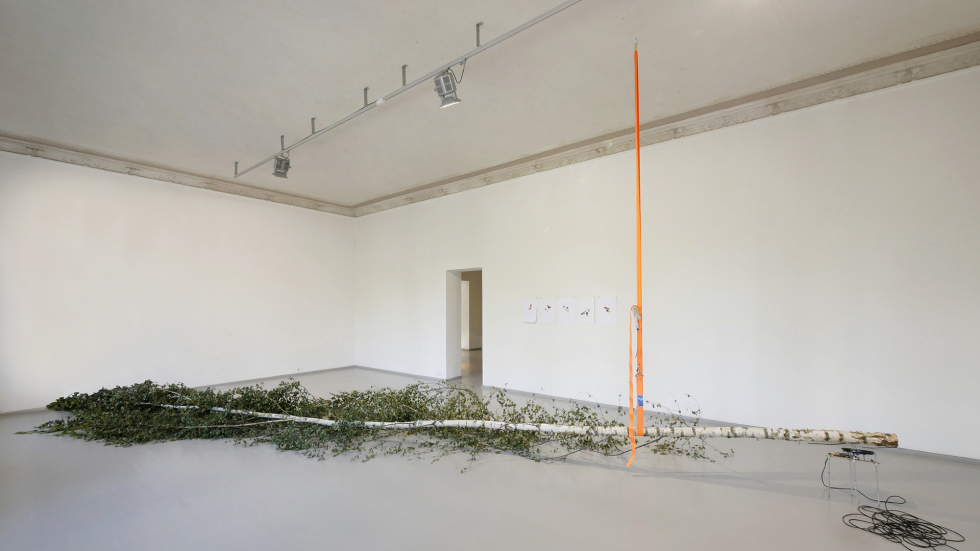Krišs Salmanis – art has to be photogenic
Public art has to be insta-friendly. Only than it will be able to pursue more serious objectives. But it cannot save the world. Piotr Jędrzejowski speaks with Krišs Salmanis.

Krišs Salmanis [Kriss Salmanis]
Nominated by: The Latvian National Museum of Art in Riga
What do you think of your nomination in the Baltic Horizons competition?
It is a pleasure and an honour. I was happy to explore Sopot and to meet the fellow artists.
What functions should art have in public space?
First and foremost, public art has to be photogenic. If it is good selfie material then it will also be able to pursue its more serious objectives, in this case – contribute to the change in public attitudes towards ecology.
Your work often features nature, especially trees, as well as music (or more generally: sound), for example, the sound installation “Pollisounder” from 2018 and the earlier one, “Swelter” (2009), with a tree subtly moving across the landscape. “On One’s Own” from 2016, on the other hand, combines the two orders: a tree becomes the arm of a gramophone record on which the chaffinch song is recorded. Why this return to these two orders in your work? Are you returning to them today?
Nature and elements of rural life seemed good symbols for those aspects of the human condition which I was interested in at the time. The sliding tree in a stereotypical country idyll was a reflection on change which kept taking me by surprise. The cut tree acting as an amplifier for the voice recording of a finch was a futile attempt to reconstruct a beautiful moment from the past. I guess also the animated self-destroying barn and other works were dealing with the transitory nature my being here.
Sound has always fascinated me because of its immediacy. By using it in visual arts I also try to make up for my total lack of musical education. However my proposal for Sopot will use neither nature nor sound.
You move across many very different fields of artistic practice (poetry, music, audio production, animation) and draw inspiration from just as many different sources: sometimes it’s the finch and sometimes it’s British sci-fi literature. Where do you draw most of your inspiration from today?
Science and research are inspiring. I am sorry that, for example, James Webb telescope was overshadowed by the most urgent event of our times – the war in Ukraine – but I hope the time is not far when we will be able to pay full attention to scientific discoveries again. Reading about the dedication and talent that has gone into such projects, I fail to understand why anyone would want to waste their lives on waging war.
In one of your interviews you said: “My sister and I recently decided that in the next interview we give together, if asked whether art can change the world, we will reply with conviction that it certainly can. We could not, however, agree on the right arguments to support the statement”. Perhaps there will be an opportunity to talk together with your sister, but today I would like to put this question to you: Can art fix the world?
What a wonderful decision it must have been. Words are powerful tools. They may work even when we know they are not true, like in the case of flattery. I guess we decided to promote good by deliberate naivety. Unfortunately by now I am back to scepticism again. For me art is one of the very few forms of human activity that has no purpose. It is not driven by necessity and it has no rules. If forced, the only task I can imagine art might have is to promote tolerance. The vast diversity and often incomprehensibility of art should have the „live and let live” effect on its spectators and by association – on their surroundings. And yet instead of tolerance we are faced by a new massive war and increasingly volatile political and social differences. In that sense art has failed. But I console myself by thinking that if even Praxiteles and Beethoven failed to save the world then we are not to be judged too harshly, either.
 Powrót
Powrót